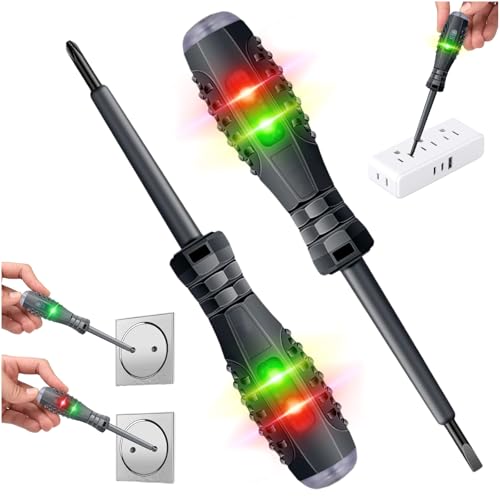- Joined
- Mar 28, 2008
- Messages
- 14,663
- Reaction score
- 1,364
Unfortunately you like many others are caught in a major balls-up that was never properly designed, or implemented following the introduction of Part-P building regs:
Don't know if this helps or not, but my understanding of the historic points of how we got to the current short course mess-up is as folows:-
1] Pre 2005 various electrical trades bodies we already in existence..
2] Numerous qualified and competent electricians were trading often without any optional trade-body membership, (mostly only requested for certain commercial non-domestic work).
3] As DIY electrical work was and still is legally permissible, numerous DIY, cowboy builder, rouge trader bodges etc.. had started to raise some concerns amongst out political leaders.
4] Making wiring regs statutory and electrical work illegal for non-qualified persons was far to expensive and time consuming.
5] Changing a few statutory building regs making some, (not all) electrical work notifiable to your LABC, with potential fines to the homeowner for un-notified work was easier to implement.
6] Introducing some new electrical competent persons scheme would allow electricians who joined to be able to notify their work on behalf of the customer.
7] The individual scheme providers (Napit / Niceic / Eca / Elecsa / Bsi / Stroma etc..) would have the responsibility to vet and inspect their members to ensure compliance with some minimum standards, (Qualifications/Documents/Insurance etc.)
8] As proven knowledge of the current wiring regs was a requirement, and there were vast numbers of electricians were initial qualified to earlier versions of BS7671, there was a large pool of people wanting to update qualifications with insufficient capacity on traditional college courses to deal with the added demand.
9] So various training providers introduced short update courses, for previously qualified electricians to become up to date with latest BS7671. (these were never intended to be complete training for a complete novice to re-train.)
10] Over the years the pool of older electricians were gradually processed and loads of training providers who had jumped on the band-waggon, had now got short courses but less new customers.. So courses were tweaked, adding a few extra non-essentials like PAT.. (PAT was a another money generating ball starting to roll).. And then re-promoted courses as "Change career, Learn from home, or local classroom" options.
11] Also once all the existing trading electricians had either joined or chosen not to join any domestic CPS, the various CPS bodies were also on the look out for new customers.. with either competition by price, or accepting some lesser qualified members, often with options for them to take additional qualifications via the CPS own in-house training packages!
12] As competition around the Part-P notification market intensified, some CPS providers stopped offering domestic electrical membership, some were merged with others, some training providers started calling electrical courses "Part P qualifications", and we got to the point where both training providers and CPS providers were all out there touting for new business. With stories of people using a couple of extra sockets at their grannies house as the example of their work and It became a common phrase that providing they could cash-your-cheque membership would follow!
13] As mentioned previously I believe that over the past 18months there has been some wrapping of knuckles telling the CPS's to be a bit more diligent in their selection, vetting and annual assessments! Only time will tell if this turns out to be a reality?
14] Basically there have been far to many fingers in the pie just cooking up a massive mess! e.g. when you compare to a single legal required body for undertaking Gas related work. https://www.gassaferegister.co.uk/about-us/what-is-gas-safe-register/
They should have just introduces one single legal register for anyone undertaking any domestic electrical work!!
You are at least asking the right questions and trying to follow the right direction.


Don't know if this helps or not, but my understanding of the historic points of how we got to the current short course mess-up is as folows:-
1] Pre 2005 various electrical trades bodies we already in existence..
2] Numerous qualified and competent electricians were trading often without any optional trade-body membership, (mostly only requested for certain commercial non-domestic work).
3] As DIY electrical work was and still is legally permissible, numerous DIY, cowboy builder, rouge trader bodges etc.. had started to raise some concerns amongst out political leaders.
4] Making wiring regs statutory and electrical work illegal for non-qualified persons was far to expensive and time consuming.
5] Changing a few statutory building regs making some, (not all) electrical work notifiable to your LABC, with potential fines to the homeowner for un-notified work was easier to implement.
6] Introducing some new electrical competent persons scheme would allow electricians who joined to be able to notify their work on behalf of the customer.
7] The individual scheme providers (Napit / Niceic / Eca / Elecsa / Bsi / Stroma etc..) would have the responsibility to vet and inspect their members to ensure compliance with some minimum standards, (Qualifications/Documents/Insurance etc.)
8] As proven knowledge of the current wiring regs was a requirement, and there were vast numbers of electricians were initial qualified to earlier versions of BS7671, there was a large pool of people wanting to update qualifications with insufficient capacity on traditional college courses to deal with the added demand.
9] So various training providers introduced short update courses, for previously qualified electricians to become up to date with latest BS7671. (these were never intended to be complete training for a complete novice to re-train.)
10] Over the years the pool of older electricians were gradually processed and loads of training providers who had jumped on the band-waggon, had now got short courses but less new customers.. So courses were tweaked, adding a few extra non-essentials like PAT.. (PAT was a another money generating ball starting to roll).. And then re-promoted courses as "Change career, Learn from home, or local classroom" options.
11] Also once all the existing trading electricians had either joined or chosen not to join any domestic CPS, the various CPS bodies were also on the look out for new customers.. with either competition by price, or accepting some lesser qualified members, often with options for them to take additional qualifications via the CPS own in-house training packages!
12] As competition around the Part-P notification market intensified, some CPS providers stopped offering domestic electrical membership, some were merged with others, some training providers started calling electrical courses "Part P qualifications", and we got to the point where both training providers and CPS providers were all out there touting for new business. With stories of people using a couple of extra sockets at their grannies house as the example of their work and It became a common phrase that providing they could cash-your-cheque membership would follow!
13] As mentioned previously I believe that over the past 18months there has been some wrapping of knuckles telling the CPS's to be a bit more diligent in their selection, vetting and annual assessments! Only time will tell if this turns out to be a reality?
14] Basically there have been far to many fingers in the pie just cooking up a massive mess! e.g. when you compare to a single legal required body for undertaking Gas related work. https://www.gassaferegister.co.uk/about-us/what-is-gas-safe-register/
They should have just introduces one single legal register for anyone undertaking any domestic electrical work!!
You are at least asking the right questions and trying to follow the right direction.
Last edited:
































































